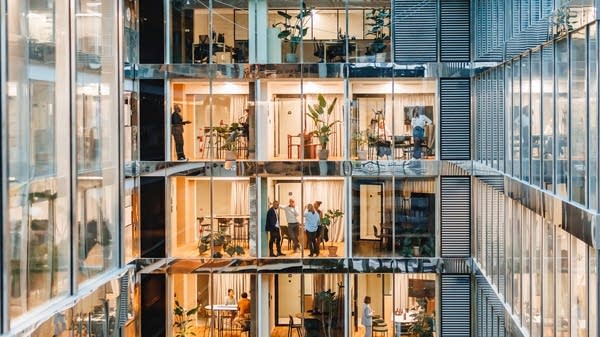China’s protesters are angry about more than just zero-COVID
After nearly three years of China’s zero-COVID policy, citizens are exhausted and some are calling for more than just an end to the restrictions.

People in the southern Chinese city of Guangzhou clashed with police overnight, in the latest protest against the country’s strict zero-tolerance for COVID policy.
Footage online showed cops in full hazmat suits clutching riot shields to protect themselves from debris lobbed by protesters.
Unrest has broken out in several Chinese cities since the weekend. While most of the protests are small in scale, they’re significant because the demands include political change.

“I don’t think anyone can tolerate [zero-COVID] anymore,” an American businessman in Shanghai said. “People in Xinjiang got locked down for more than three months and Shanghai [was] 2.5 months. It was so difficult. So many people got depression.”
Like all the people who spoke to “Marketplace,” the American businessman did not reveal his name for fear of official retaliation.
The protests were initially set off by a deadly apartment fire in the city of Urumqi, in the far-Western Xinjiang region. It was under a strict lockdown at the time. Locals suspected the 10 people who perished in the fire died because of COVID restrictions, which the authorities deny.
“Long live the people! May the (Xinjiang) victims rest in peace,” students at Communications University of Nanjing chanted in a widely shared video.

Very quickly, the commemoration for the fire victims morphed into anger towards the government’s zero-COVID policy.
“No PCR tests! We want freedom!” protesters in Shanghai chanted.
Young people in Beijing called for an end to a health QR code system, which is meant to make COVID contact tracing easier. However, the system has also been used by the authorities to limit the movement of protesters or dissenters.
Protests have extended to other cities like Chengdu in Southwest China — which has been in and out of lockdown. A widely-circulated video showed dozens of people facing off against a line of police officers.
“Do you know how many shops are sitting empty?” one resident asked the cops. “You are not worried because you still get paid. That is our taxes, our savings feeding you. Did you know that?” the resident said. The crowd cheered and applauded.

China’s zero-COVID policy has shown how much control the government has over residents. Communist neighborhood committees and even security guards are gatekeepers for the most basic decisions regarding peoples’ food, travel or hospital visits.
In Shanghai last Saturday, protesters chanted: “No to dictatorship! Yes to democracy!” Some people even called for the Communist Party and its top leader Xi Jinping to step down — a dangerous thing to do in China.
Others opted to protest by holding up blank pieces of paper, a tactic they hoped would not lead to arrest.
Shanghai’s protests continued Sunday but by afternoon, the authorities had blocked off the protest site. “There are too many people inside,” one cop at a barrier said. “No entry. Exit only.”
Delivery drivers were not allowed through either. “I have no idea why,” one delivery man said, while calling his customers to come out and pick up their parcels.
Many people in China still haven’t heard about the protests because of heavy censorship.

A young man unhappy with this information lockdown marched up to the police at a barricade.
“What are you controlling?” he asked them. “Traffic,” one cop replied. “Why?” asked the young man. “We’ve told you everything we know,” said another officer. “We’re just here to execute orders. I can give you a number to complain.”

“You want me to complain about you to your people? What am I, crazy?!” the young man said before bystanders pulled him away.
A number of people, including foreign journalists, were detained.
Police have since stepped up their presence across China and are still tracking to see who attended the protests.
It was not all tense in Shanghai on Sunday. Staff from a bakery stuck within the police barricade came out with bread to feed the curious bystanders.
“Discount on bread and toast! 15% off,” a bakery staffer said.
I had no time to stick around because I had to find a PCR testing point.
Just as the police were dispersing protesters, the Shanghai government announced a tightening of rules. If residents want to dine out, go to the mall or get a massage, they will need a PCR test every 48 hours instead of the usual 72.













